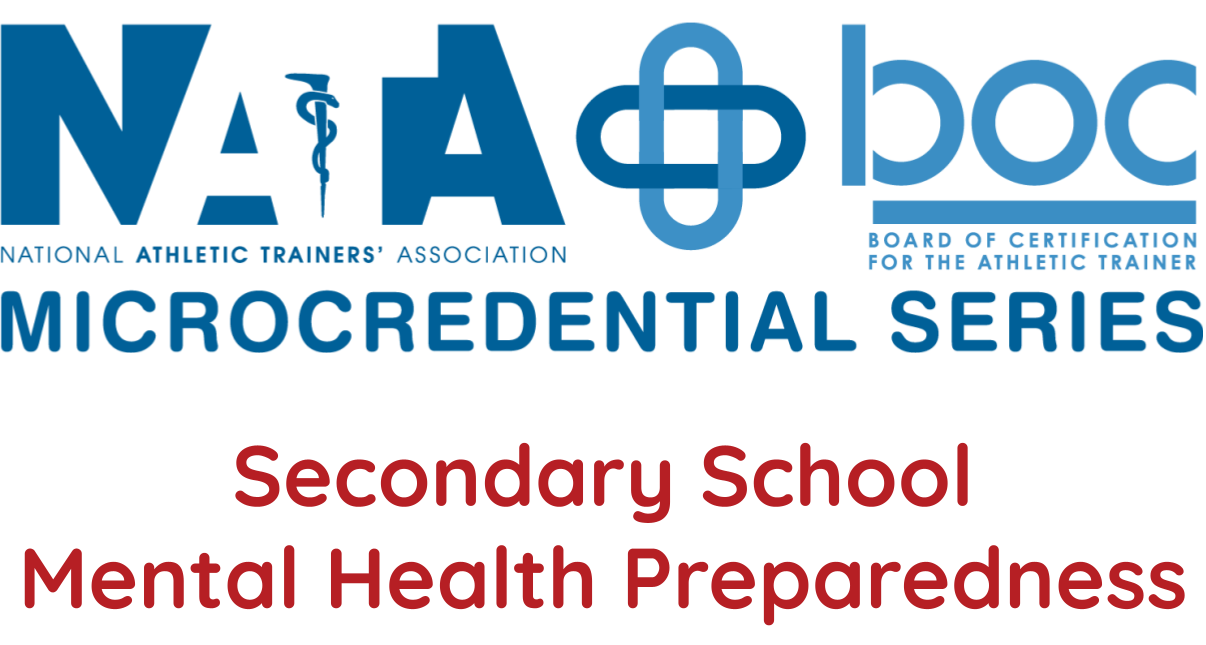
Tamara Valovich McLeod, PhD, ATC, FNATA
Dr. Tamara Valovich McLeod is the Chair, Director, and a Professor of Athletic Training, Professor in the School of Osteopathic Medicine in Arizona, and John P. Wood, D.O., Endowed Chair for Sports Medicine at A.T. Still University in Mesa, Arizona. Dr. McLeod completed her PhD from the University of Virginia. She was the founding director of the Athletic Training Practice-Based Research Network and her research has focused on the pediatric athlete with respect to sport-related concussion.
Dr. McLeod is fellow of the NATA, the National Academy of Kinesiology, and the National Academies of Practice-Athletic Training and was the recipient of the NATA Foundation Medal for Distinguished Athletic Training Research in 2023.
Content Where I Am Featured
-
Contains 6 Component(s), Includes Credits
Despite best-practice evidence indicating that weather monitoring and activity modification are essential for athlete safety, many states do not have state-wide standardized policies for exercising in the heat. Wet bulb globe thermometry is the gold standard for assessing environmental heat stress during physical activity, however in dry or arid climates many stakeholders perceive the inclusion of a humidity metric to be unnecessary. This session will describe one state’s experiences with establishing the need for weather monitoring in a dry climate and strategies for promoting stakeholder buy-in to develop state-specific guidelines.
-
Register
- Non-member - $25
- Member - Free!
- Student - Free!
- Staff - Free!
- Certified Student - Free!
- Retired - $15
- More Information
-
Register
-
Contains 5 Component(s), Includes Credits
Evaluating concussion in the context of a public health approach to study concussion prevention has been a focus of concussion research in the past few years. Concussion researchers have followed public health approaches that tend to emphasize prevention over treatment and engage multiple levels of the socio-ecological framework. Some preliminary data suggest that engaging the visual system through a pre-season sports vision training program may improve peripheral vision allowing student-athletes to anticipate blindside hits, which may prevent some concussions from occurring. While prevention programs may be of benefit as a primary prevention strategy, not all concussions will be prevented, requiring the development…
-
Register
- Non-member - $31.25
- Member - Free!
- Student - Free!
- Staff - Free!
- Certified Student - Free!
- Retired - $18.75
- More Information
-
Register
-
Contains 5 Component(s), Includes Credits
Appropriate management of a patient following concussion includes a brief period of rest, followed by a gradual return-to-activity progression that leads to full participation in school and sports (Halstead, 2013; Valovich McLeod 2017). Successful integration of the healthcare and school environments is important in managing concussions. However, recent literature has reported a disconnect between the beliefs and practices of many members of the concussion management team (Williams, 2015; Weber 2015; Kasamatsu, 2016). While the return to sport component is addressed well in athletic training education, less attention is given to addressing return to school, which leads to a lack of knowledge among athletic trainers in this area…
-
Register
- Non-member - $25
- Member - Free!
- Student - Free!
- Staff - Free!
- Certified Student - Free!
- Retired - $15
- More Information
-
Register
-
Contains 5 Component(s), Includes Credits
Early sports specialization has been associated with an increased risk of overuse injury, however, less is known regarding the psychosocial and mental health considerations of sports specialization. This presentation will review the benefits of sports participation on psychological health, the impact of early sports specialization on overtraining, burnout, and mental health, and recommendations to reduce the risk of these outcomes. Strategies to screen for overtraining and burnout will be discussed with case examples to illustrate practical considerations.
-
Register
- Non-member - $25
- Member - Free!
- Student - Free!
- Staff - Free!
- Certified Student - Free!
- Retired - $15
- More Information
-
Register
Please Login
Announcements
Statements of Credit
Statements of Credit for NATA 2025 & NATA EducATe courses can be found on the My Transcript page of NATA EducATe. Statements of Credit from NATA 2024 and prior can be accessed from the Statements of Credit Portal by entering the last name and email used to register for convention.
Reporting Period Update
Certification renewal requirements for the 2024-2025 reporting period are due to the BOC by Feb. 2, 2026 at 5 p.m. CST. For more info or questions, visit bocatc.org or email boc@bocatc.org.
NEW to NATA EducATe?
Review our Getting Started page to learn how to navigate the site, locate your statements of credit, view previously completed courses, and search our catalog for available courses.
Expiration Date Policy for Enhanced Access On-Demand Courses
All courses in our Enhanced Access On-Demand Catalog will expire at the end of the membership year on December 31 at 11:59 p.m. CST. Visit our FAQ page for additional details.

The NATA Leadership Institute equips athletic trainers with skills, mentorship, and experiences that strengthen the profession today and shape its direction for tomorrow.
Registration Open Dec. 1 - Feb. 6

